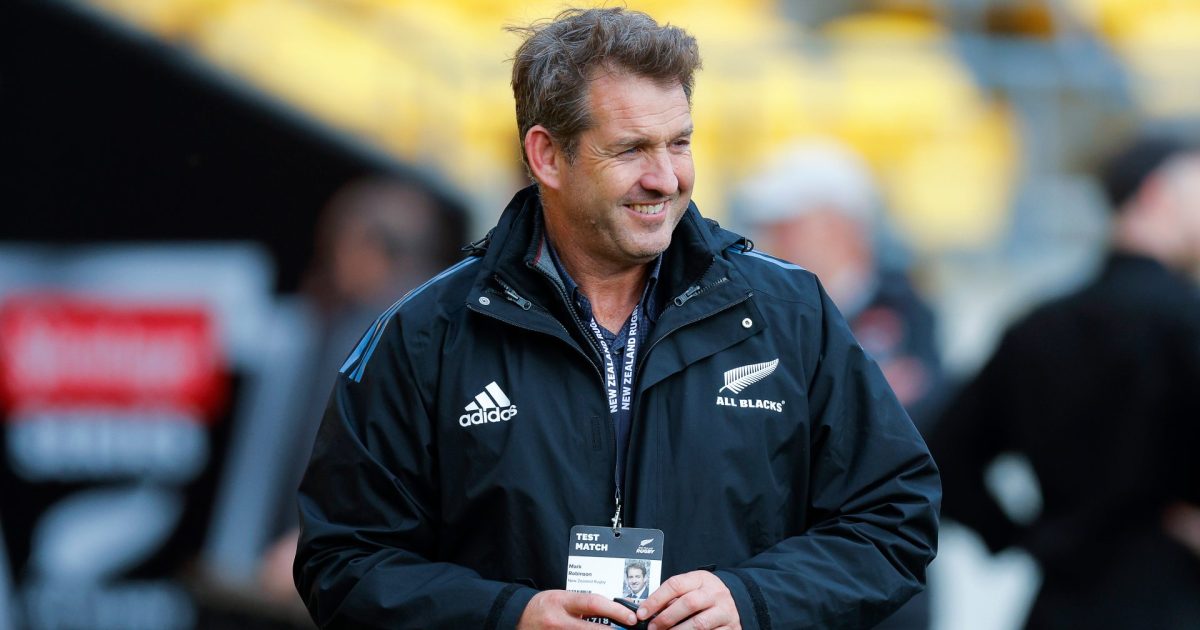'Players need a break': Mark Robinson on the future of the All Blacks' rest policy

Criticism of the All Blacks‘ resting policy has again flooded in following the Hurricanes’ team announcement for their clash with the Chiefs. Ardie Savea, Jordie Barrett and Tyrel Lomax will all miss the heavyweight matchup in order to ensure their availability for the Hurricanes’ playoff run.
The absence of three of the Hurricanes’ top players has not been well-received by Super Rugby fans who were anticipating another epic match between the two rivals and wanted to see all the stars in action.
It’s not the first instance of the rest requirements coming into play in big matches, but Hurricanes head coach Jason Holland said criticism of his decision was “a kick in the teeth” for the players who step up into the starting lineup in the All Blacks players’ absence.
New Zealand Rugby CEO Mark Robinson offered insight into the research behind the policy – which requires All Blacks to rest at least every fifth week of Super Rugby Pacific – and shared how the policy might evolve in the future.
“It’s a great question and it’s a fair one,” Robinson said on SENZ.
“We have an obligation where we are juggling priorities and all the research and data we see from our high-performance people around load management and amount of minutes suggests that the players need a break around the five to six game mark.
“I appreciate that there are fans out there who are used to seeing players play for long periods of time. However, we feel an obligation around player welfare and all the information is telling us they need a break.
“(Concussion) is also a massive priority for us. We are looking at ways we can change the format of the game (so that) over time, the nature of (head) contact will change.”
A major change in the game at the community level has been encouraged by World Rugby following extensive analysis and consultation that would see the legal tackle height lowered to the sternum. At this stage, the initiative is an opt-in trial in the community game globally, but depending on results and feedback, changes could be implemented at the professional level.
New Zealand Rugby will keep player safety a top priority and doesn’t see its policy as posing significant enough of a threat to audience engagement to provoke a revision. Robinson highlighted some of the recent achievements of Super Rugby Pacific’s crowd numbers as a testament while also acknowledging how he and his board are working to evolve with the changing landscape of sport in New Zealand.
“We have seen two sell-outs in recent weeks,” Robinson said, referring to round 12’s Crusaders vs Blues match and round 10’s Crusaders vs Chiefs.
“Historically, the sport has relied on rugby being the national game and the (thinking has been) that you should come out and support us.
“We acknowledge that we need to change that model.
“We are working really hard to put the fan in the centre of the game.
“We have worked hard to grow value across the game so we can re-invest and foster the game at all levels.”











































































Kiwis and aussie based players play the least rugby..take the for kiwis for eg. 5 weeks of srp and maybe some playing another 3 weeks than just test matches....RC and northern tour....NH players, France for eg play club rugby for more than 30weeks than 6N and summer tour to SH and then host SH teams during northern tour...who needs rest???what they should do is have a tri nations between Fiji, Aus and Kiwis within SRP season...
It’s another case of blind Freddy seeing how something is obviously wrong and what do you think the solution offered by the Government is or in this case the bozos running SRP / you’re all wrong - the stats are actually telling us the players need more rest - free market will fix these clowns - when there’s no one at the ground bar the players and their families because no one else will care about the result